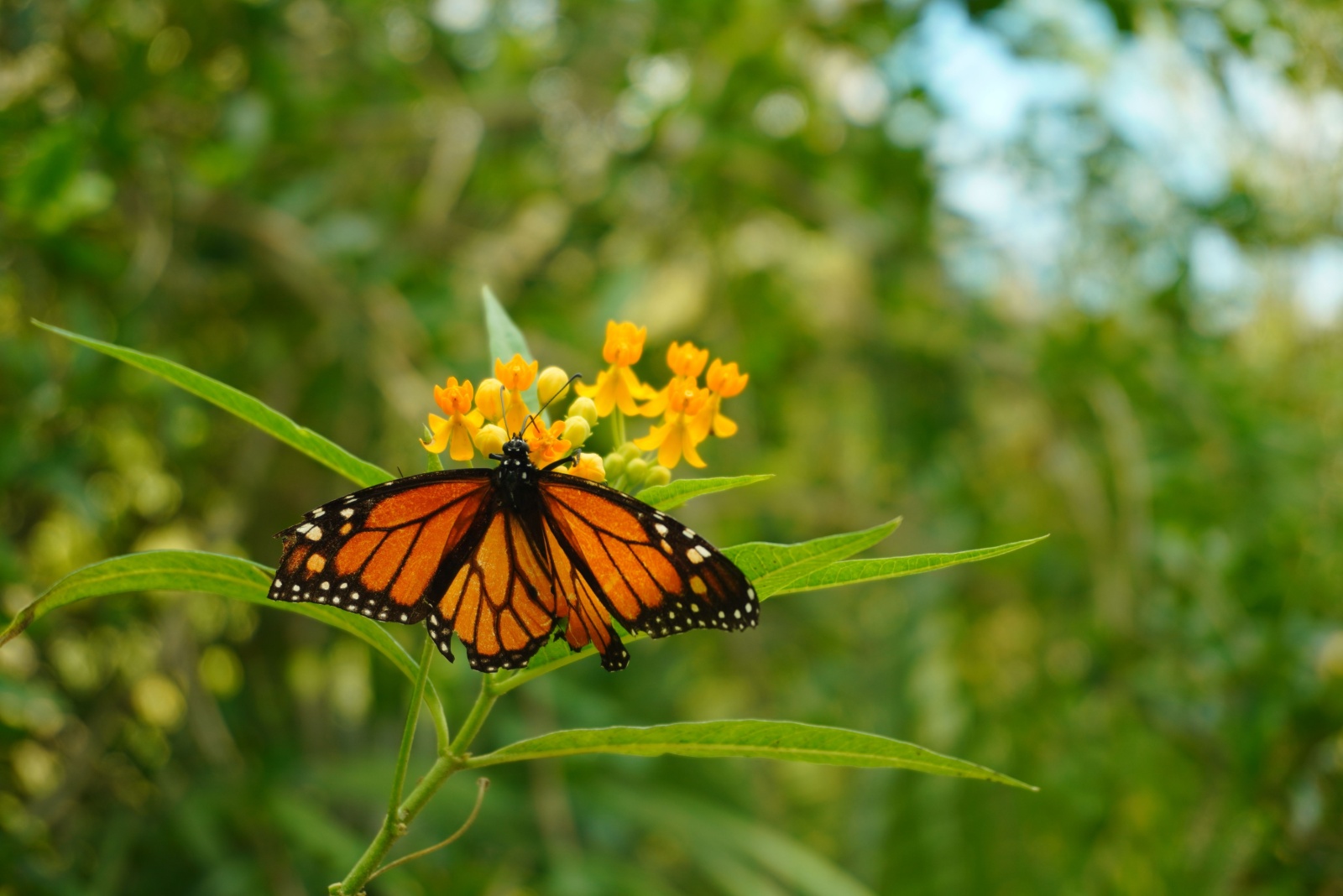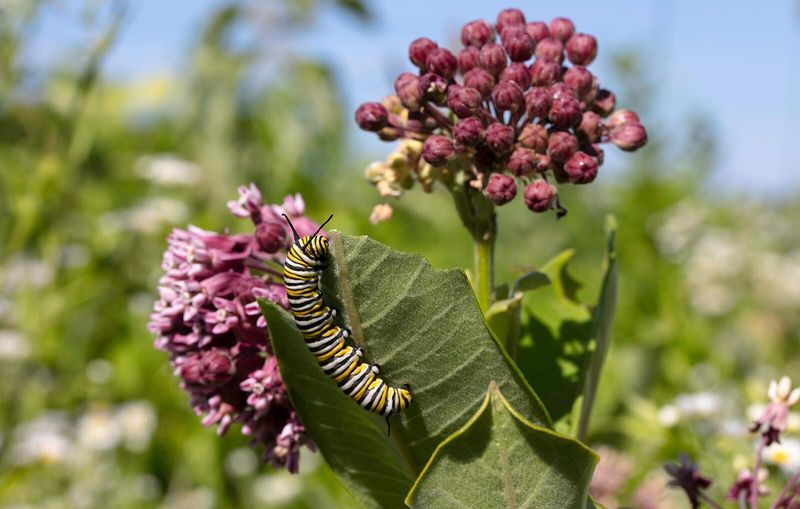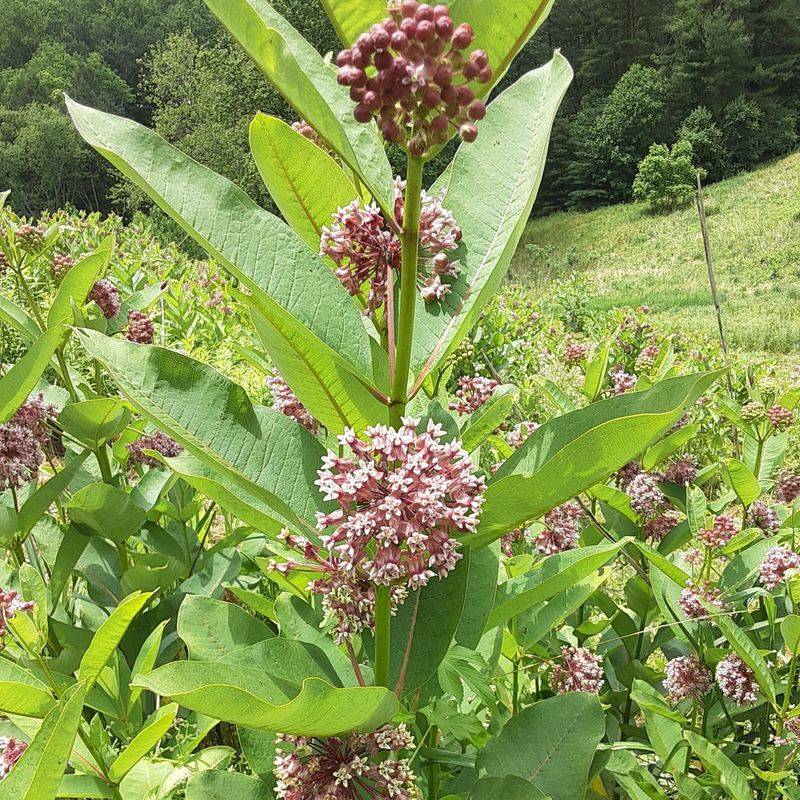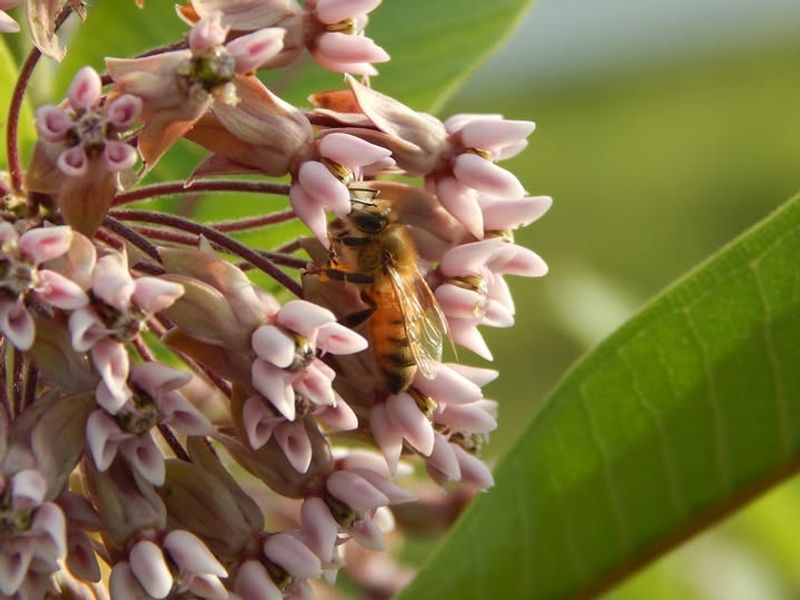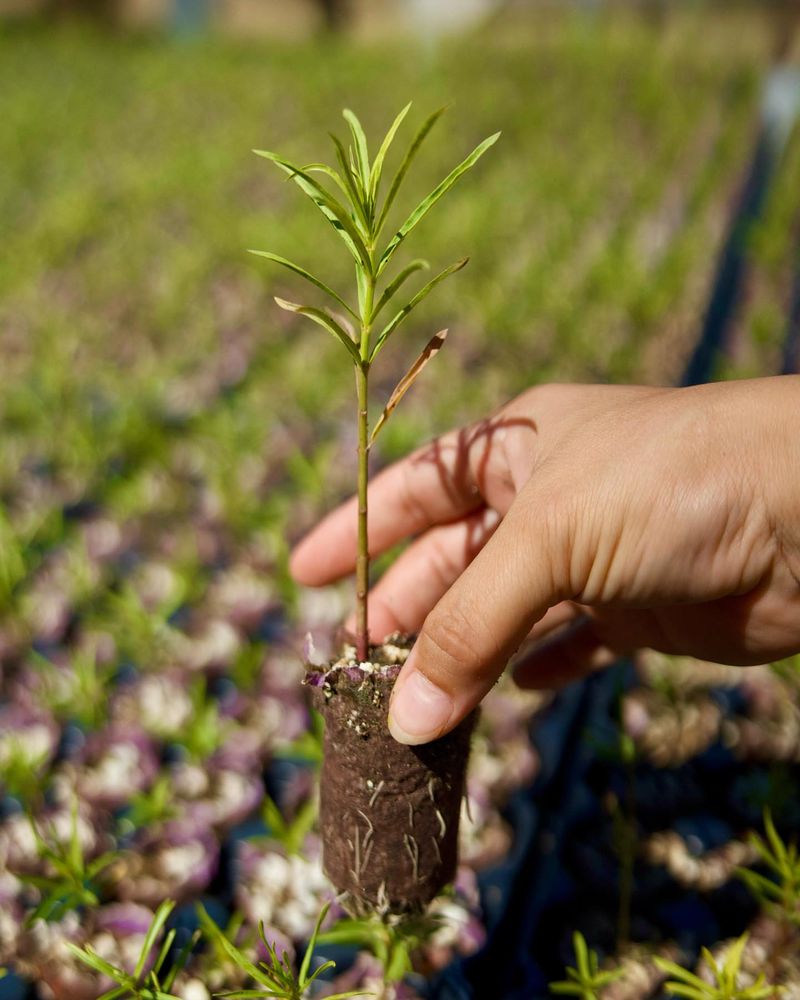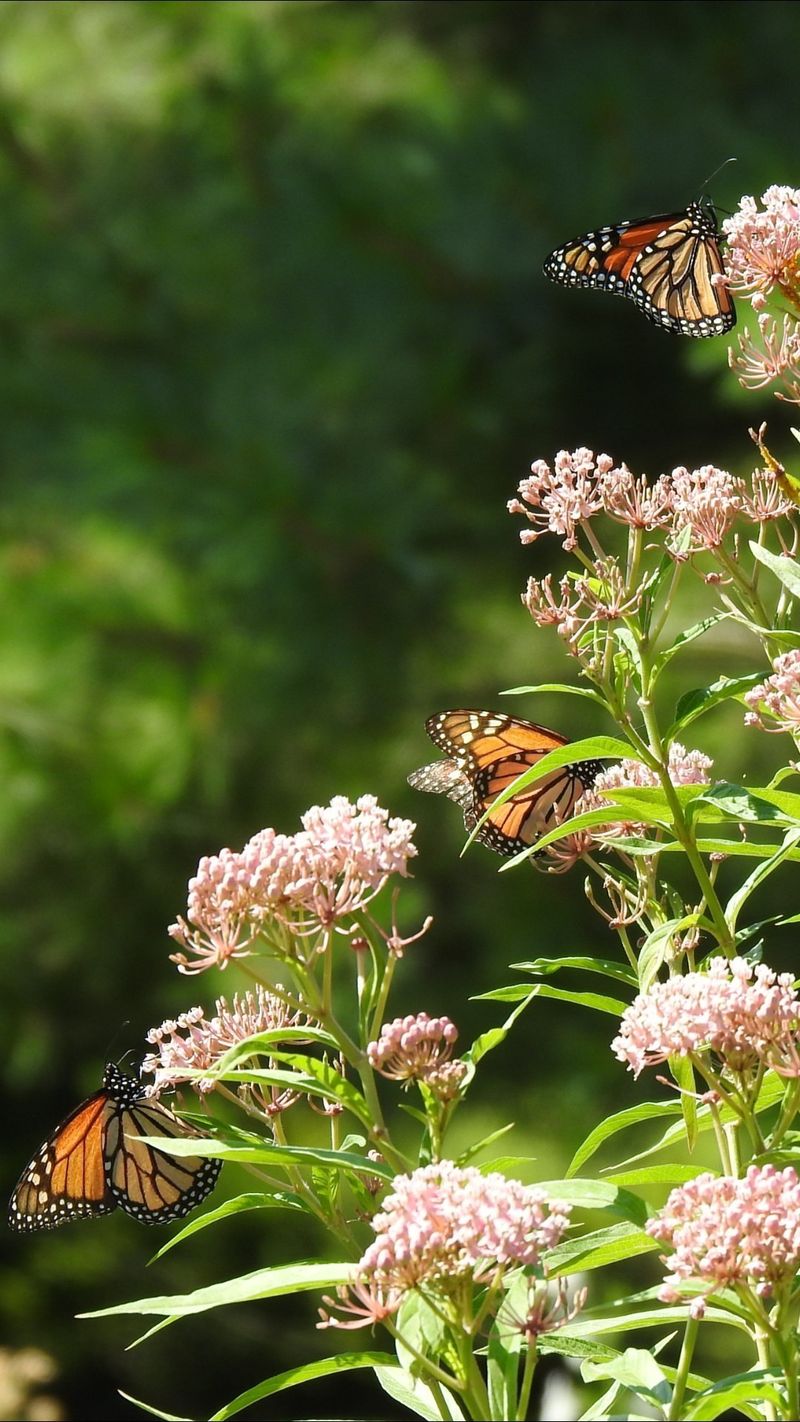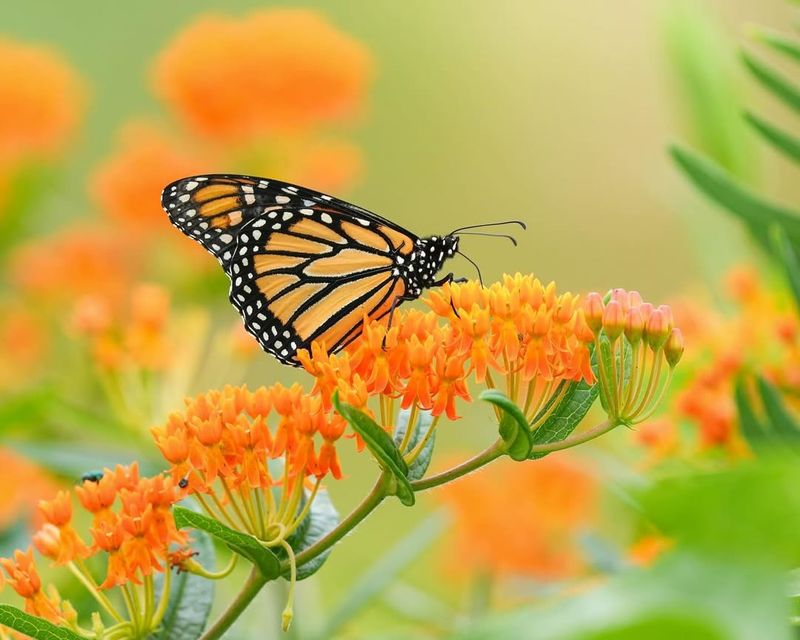Monarch butterflies are disappearing from Pennsylvania at an alarming rate, and milkweed is their only hope for survival. Without this special plant, these beautiful orange and black butterflies cannot reproduce or complete their incredible migration journey.
Planting milkweed this fall can make a real difference in saving these threatened insects while also helping your local ecosystem thrive.
1. Monarch Butterflies Depend On Milkweed For Survival
Monarch caterpillars eat only one thing: milkweed leaves. Female monarchs lay their eggs exclusively on milkweed because the plant provides everything their babies need to grow strong and healthy.
Without milkweed in your yard or community, monarchs simply cannot reproduce. Pennsylvania sits right along their migration path, making your garden a critical rest stop.
By adding milkweed to your landscape, you become part of a life-saving network that helps these iconic butterflies survive and continue their amazing journey south each fall.
2. Milkweed Populations Have Dropped Dramatically Across The State
Over the past twenty years, Pennsylvania has lost millions of milkweed plants due to development, farming practices, and herbicide use. What once grew wild along roadsides and fields has nearly vanished from many areas.
Scientists estimate that monarch populations have declined by more than 80 percent, directly linked to milkweed loss. Every plant you add helps reverse this troubling trend.
Fall planting gives milkweed roots time to establish before winter, ensuring strong growth next spring when monarchs return and need it most for breeding.
3. Supporting Native Pollinators Beyond Just Monarchs
Did you know? Milkweed attracts dozens of beneficial insects, not just monarchs. Bumblebees, honeybees, hummingbirds, and many native butterfly species rely on milkweed nectar as an important food source throughout summer.
Pennsylvania’s native pollinators face habitat challenges similar to monarchs. Planting milkweed creates a buffet that supports entire pollinator communities.
When you help one species, you end up helping many others. Your milkweed patch becomes a buzzing hub of activity that strengthens the local food web and ecosystem health.
4. Fall Planting Gives Your Milkweed A Head Start
Autumn offers ideal conditions for establishing milkweed in Pennsylvania gardens. Cooler temperatures mean less stress on young plants, and fall rains help roots develop deep and strong before winter arrives.
Spring-planted milkweed often struggles with heat and drought during its first summer. Fall planting avoids these problems entirely.
Come next April and May, your established milkweed will emerge early and robust, ready to welcome the first wave of migrating monarchs heading north to breed across Pennsylvania.
5. Creating Chemical-Free Zones That Benefit Everyone
Milkweed thrives without pesticides or chemical fertilizers, making it perfect for eco-friendly gardening. Monarchs are extremely sensitive to pesticides, so keeping your milkweed patch chemical-free is absolutely essential.
Many common lawn chemicals kill caterpillars and butterflies on contact. By growing milkweed naturally, you create a safe haven.
Your chemical-free zone also protects birds, beneficial insects, pets, and children who play in your yard. Everyone wins when you choose natural gardening methods that work with nature instead of against it.
6. Teaching Future Generations About Conservation
Watching monarchs transform from tiny eggs to caterpillars to butterflies creates unforgettable learning moments for kids. Milkweed in your yard becomes an outdoor classroom where children witness nature’s miracles firsthand.
Young people who connect with butterflies often develop lifelong environmental awareness and respect for wildlife. Your garden plants seeds of conservation that grow far beyond your property.
Pennsylvania’s future depends on raising a generation that values and protects nature. Something as simple as planting milkweed can inspire tomorrow’s environmental leaders.

